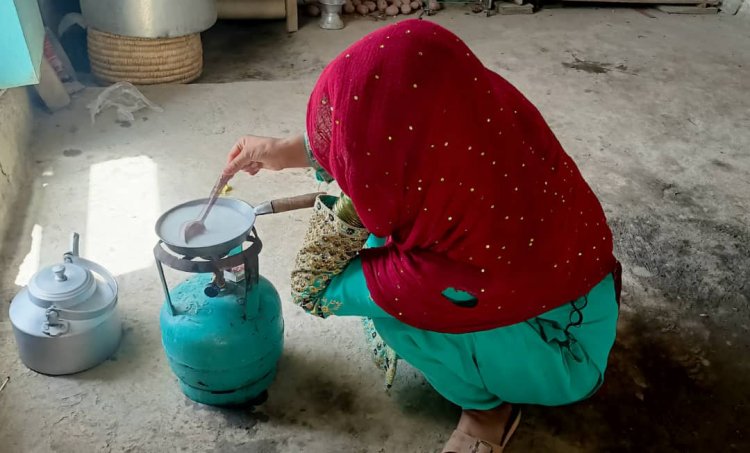Forced Marriages: The Life Story of a Young Woman Trapped by Tradition

In Afghanistan, when the topic of forced marriages is raised, it immediately brings to mind the plight of girls. This is because, for generations, girls in this country have been the primary victims of forced marriages.
Some are given away as compensation in tribal disputes, while many others are married off for money or in exchange deals. Suddenly, they are pulled from the world of childhood and dolls and burdened with the heavy responsibilities of marriage—responsibilities far beyond their capacity.
“I had no idea I would be deprived of education and that my father would marry me off to an older man against my will. Since the day I got married, my life has been bitter and I am scolded every day.”
These are the words of Nafisa, a 22-year-old woman from the outskirts of Mehtarlam, the capital of Laghman province. Four years ago, her father forced her to marry a man nearly 30 years older than her.
Nafisa says that at the time, she knew nothing about married life. She wasn’t familiar with household chores and was only in ninth grade. Her biggest worry was whether her husband would allow her to continue her education.
But after marriage, her husband did not let her study. This had a significant impact on her learning, and much of what she had gained at school has now been forgotten.
She adds, “My father received 500,000 Afghanis as a dowry from my in-laws. Even then, I objected. I told him I didn’t want to marry and wanted to continue my education. I said that if I were to marry, it should be to a young man, not an old one. But he beat me and told me to stay silent.”
According to her, she had no desire to marry and tried hard to convince her family. But her efforts were in vain. She had hoped that after marriage, she would have a happy life, be loved by her husband and in-laws. But everything turned out to be the opposite of what she imagined.
She had dreams of becoming a doctor, but harmful traditions shattered those dreams.
With tears in her eyes, Nafisa continues, “I got married a few months before the fall of the Republic government. My husband was old—nearly elderly. I thought he wouldn't stop me from studying. I imagined his mother would love me like her own daughter, and he would treat me kindly. But that’s not what happened. Every day he reminded me that my father had taken hundreds of thousands of Afghanis from him. He would say I was useless at housework, and I’d end up crying and cursing my father.”
Nafisa’s husband had a previous wife who had passed away a year before their marriage due to heart disease.
As she recalls these bitter memories, her voice trembles. She pauses for a moment, then says that due to the abusive behavior of her husband and in-laws, she has repeatedly considered running away, getting a divorce, or even ending her own life. But she has endured everything for the sake of her two children.
Nafisa says she not only manages the housework but also helps her husband with farm work. From dawn until dusk, she is busy with domestic and agricultural chores.
She adds, “My husband has six children from his previous wife—two sons and four daughters. I’m unhappy with life because my youth has been destroyed, and I’ve never had a chance to enjoy it. My peers are still unmarried, and even if they are married, their lives aren't as bitter as mine.”
She urges other families not to sacrifice their daughters to harmful traditions and not to ruin their lives as hers was. She asks that girls be allowed to make their own choices and live in peace.
Meanwhile, women’s rights activist Kolsoom Mohammadi says that even today, girls across various regions of Afghanistan are being married off against their will.
Mohammadi cites poverty, lack of public awareness, low literacy rates, and harmful cultural practices as the main reasons behind the widespread prevalence of forced marriages.
She says, “Forced marriages, and in some cases child marriages before reaching puberty, cause numerous problems. These often lead to domestic violence, divorce, and sometimes even the death of the girl. This must be stopped.”
She emphasizes the importance of religious scholars and tribal elders in preventing such practices. Their role in raising awareness and discouraging families from forcing their daughters into unwanted marriages is crucial.
Not long ago, the U.S. Special Inspector General for Afghanistan Reconstruction (SIGAR) reported that following the Taliban’s return to power and the worsening economic conditions in the country, the number of forced and underage marriages has increased significantly. SIGAR warned that underage marriage is one of the primary threats facing girls in Afghan society.
